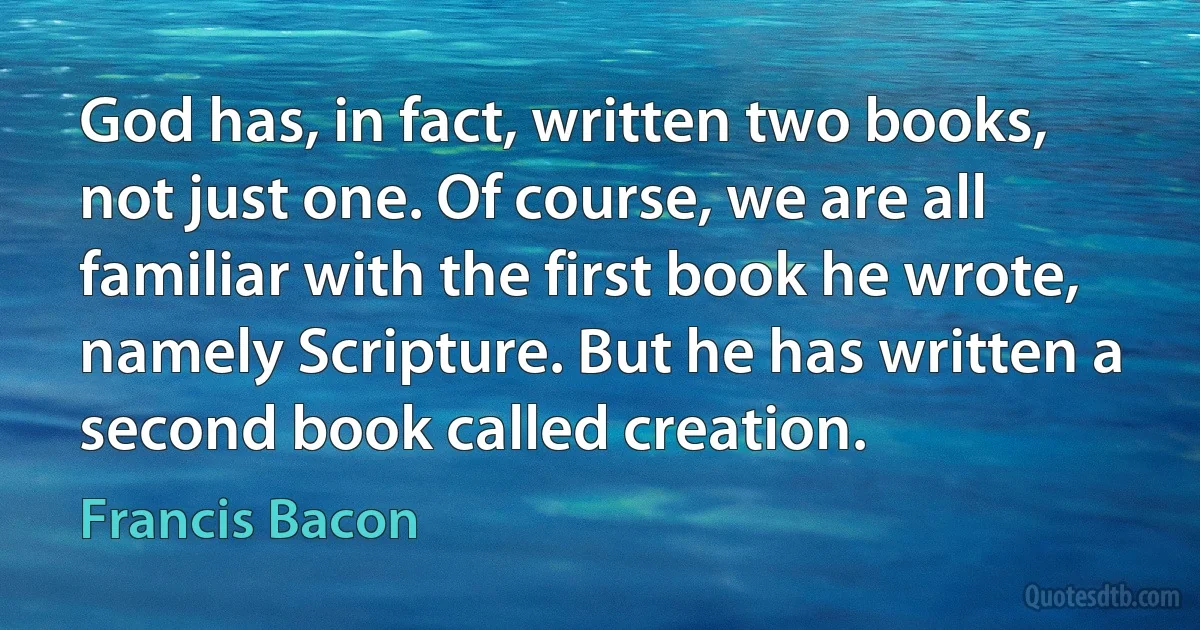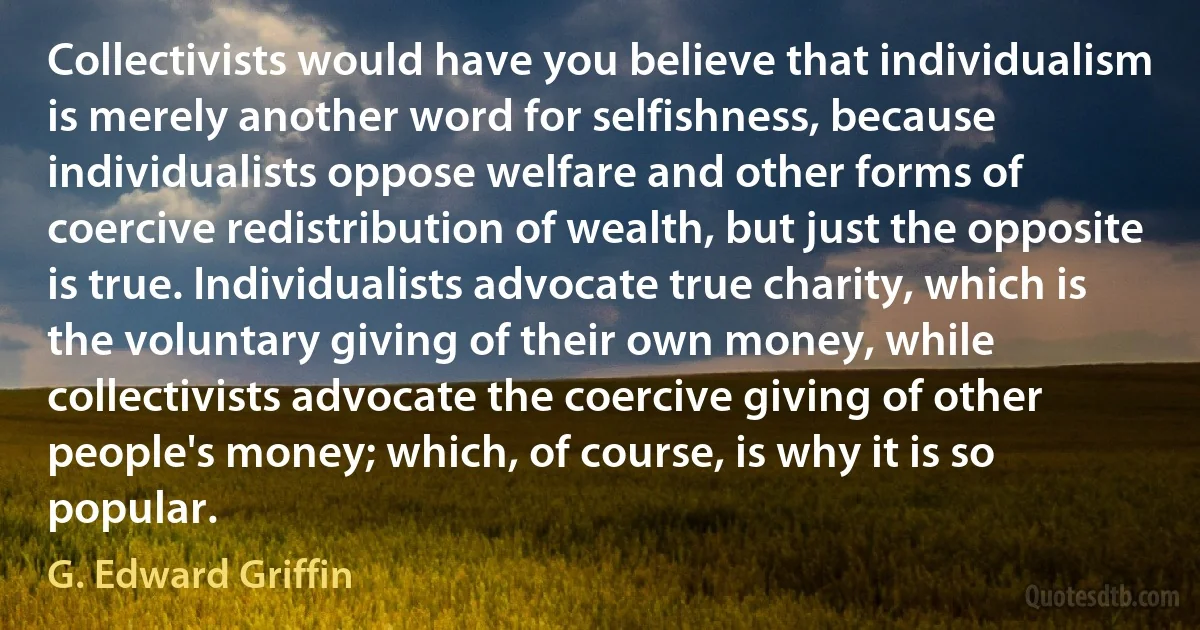Course Quotes - page 98
Water shapes its course according to the nature of the ground over which it flows; the soldier works out his victory in relation to the foe whom he is facing. Therefore, just as water retains no constant shape, so in warfare there are no constant conditions. He who can modify his tactics in relation to his opponent and thereby succeed in winning, may be called a heaven-born captain.

Sun Tzu
We must therefore glean up our experiments in this science from a cautious observation of human life, and take them as they appear in the common course of the world, by men's behaviour in company, in affairs, and in their pleasures. Where experiments of this kind are judiciously collected and compared, we may hope to establish on them a science, which will not be inferior in certainty, and will be much superior in utility to any other of human comprehension.

David Hume
We may observe, that, notwithstanding the dogmatical, imperious style of all superstition, the conviction of the religionists, in all ages, is more affected than real, and scarcely ever approaches, in any degree, to that solid belief and persuasion, which governs us in the common affairs of life. Men dare not avow, even to their own hearts, the doubts which they entertain on such subjects: They make a merit of implicit faith; and disguise to themselves their real infidelity, by the strongest asseverations and most positive bigotry. But nature is too hard for all their endeavours, and suffers not the obscure, glimmering light, afforded in those shadowy regions, to equal the strong impressions, made by common sense and by experience. The usual course of men's conduct belies their words, and shows, that their assent in these matters is some unaccountable operation of the mind between disbelief and conviction, but approaching much nearer to the former than to the latter.

David Hume
I suppose nowadays it's all a question of surgery, isn't it? Of course the notion is beautiful, the idea of staying a boy and a child forever, and I think you can. I have known plenty of people who, in their later years, had the energy of children and the kind of curiosity and fascination with things like little children. I think we can keep that, and I think it's important to keep that part of staying young. But I also think it's great fun growing old.

Johnny Depp
No, the parallels are between modernism, late modernism, and socialist realism, of course. That's two sides of one coin. Both came of this idea of aristocrats, of people in power, imposing the culture on the people. A totally inhuman art. Modern art, and Pollock is the best example, is totally inhuman. Huge pictures for museums--now we call them museums; in Stalin times they were called palaces, but basically the same thing--which we rarely see and rarely visit. The sheer size of this painting, it's a totally inhuman scale. And there it can be typified...

Alexander Melamid
I cannot speak for all, but I have talked to many artists who feel this way - we have lost even our belief that we are the minority that knows. We believed ten years ago, twenty years ago, that we knew the secret. Now we have lost this belief. We are a minority with no power and no belief, no faith. I feel myself, as an artist and as a citizen, just totally obsolete... Okay, it can be done this way or that way or this way, or in splashes or smoothly, but why? What the hell is it about? That's why we wanted to ask people. For us - from our point of view - it's a sincere thing to understand something, to change course. Because the way we live we cannot live anymore. I have never seen artists so desperate as they are now, in this society.

Alexander Melamid
A man who would be a success the world must first of all be a judge of moods, for untimely speeches will offend the ears and hurt the feelings of others, and so fail in their purpose. He has to beware of such occasions.
But falling sick and bearing children and dying - these things take no account of moods. They do not cease because they are untimely. The shifting changes of birth, life, sickness, and death, the real great matters - these are like the surging flow of a fierce torrent, which delays not for an instant but straightway pursues its course.
And so, for both priest and layman, there must be no talk of moods in things they must needs accomplish. They must be free from this care and that, they must not let their feet linger.

Yoshida Kenkō
For I find that even those that have sought knowledge for itself and not for benefit, or ostentation, or any practical enablement in the course of their life, have nevertheless propounded to themselves a wrong mark, namely, satisfaction, which men call truth, and not operation. For as in the courts and services of princes and states, it is a much easier matter to give satisfaction than to do the business; so in the inquiring of causes and reasons it is much easier to find out such causes as will satisfy the mind of man, and quiet objections, than such causes as will direct him and give him light to new experiences and inventions.

Francis Bacon
Of course it's tempting to close one's eyes to history, and instead speculate about the roots of war in some possible animal instinct: as if, like the tiger, we still had to kill to live, or, like the robin redbreast, to defend a nesting territory. But war, organized war, is not a human instinct. It is a highly planned and cooperative form of theft. And that form of theft began 10,000 years ago when the harvesters of wheat accumulated a surplus and the nomads rose out of the desert to rob them of what they themselves could not provide. The evidence for that, we saw, in the walled city of Jericho and its prehistoric tower... That is the beginning of war.

Jacob Bronowski
But I've noticed something with other artists who do use the whole range of forms of colours and black - in Albers, for instance, who experiments with yellow, red, blue, the whole scale. Of course I love his colour paintings, but when I see a black-and-white such as 'The Homage to a Black and White Square' [ Josef Albers painted more versions], I like that best, you know. I think it has something to do with deciding just exactly what you really like best. There is always that wonderful element of doubt. I like the black painters really, even if they did work in color.... Velasquez.... also Tintoretto, and Rembrandt... Goya..

Franz Kline
The proper course, therefore, is, in the first instance, to ascertain and examine the doctrine which is said by the Evangelist to precede; then after it has been proved, but not till then, it may receive confirmation from miracles. But the mark of sound doctrine given by our Saviour himself is its tendency to promote the glory not of men, but of God (John 7:18; 8:50). Our Saviour having declared this to be test of doctrine, we are in error if we regard as miraculous, works which are used for any other purpose than to magnify the name of God.

John Calvin
Some think that He does not call her 'mother' but only 'woman' so as not to inflict a deeper wound of sorrow on her heart. I do not reject this; but another conjecture is no less probable, that Christ wanted to show that now that He has completed the course of human life, He puts off the condition in which He has lived and enters into the heavenly kingdom where He will rule over angels and men. For we know that Christ's custom always was to recall believers from looking at the flesh. This was especially necessary at His death.

John Calvin
I remember when I began singing, in 1961, one person said, "run quick, because opera is going to have at maximum 10 years of life." At the time it was really going down. But then, I was lucky enough to make the first Live From the Met telecast. And the day after, people stopped me on the street. So I realized the importance of bringing opera to the masses. I think there were people who didn't know what opera was before. And they say "Bohème", and of course "Bohème is so good."

Luciano Pavarotti
Behind her chair, from a wall covered in a very expensive velvet-flock paper, a portrait of her grandfather looked down. He had been an Episcopalian bishop, but the picture showed him in the costume of a New England gentleman keeping up the Old English custom of riding to hounds: red coat, brown boots, distinguished with a white dog-collar and black silk front.
Hugh referred to him as being dressed to kill.
The salad was replaced-though Hugh had sampled only a mouthful of his-by a dish of cold fish with mayonnaise. He didn't even touch this course. He was suddenly afraid of it because it had come from the sea.

John Brunner
Yes? . . . Oh, I'm very sorry to hear that. Please convey him our best wishes for a speedy recovery. But the president did ask me to pass this message informally as soon as possible; I may say he feels very strongly about the matter. Of course, not knowing if the rumor is well founded, we didn't want to handle it on an official level . . . Yes, I would be obliged if you could make sure the ambassador is told at the earliest opportunity. Tell him, please, that any attempt to nominate Austin Train for the Nobel Peace Prize would be regarded as a grave and-I quote the president's actual word-calculated affront to the United States.

John Brunner



